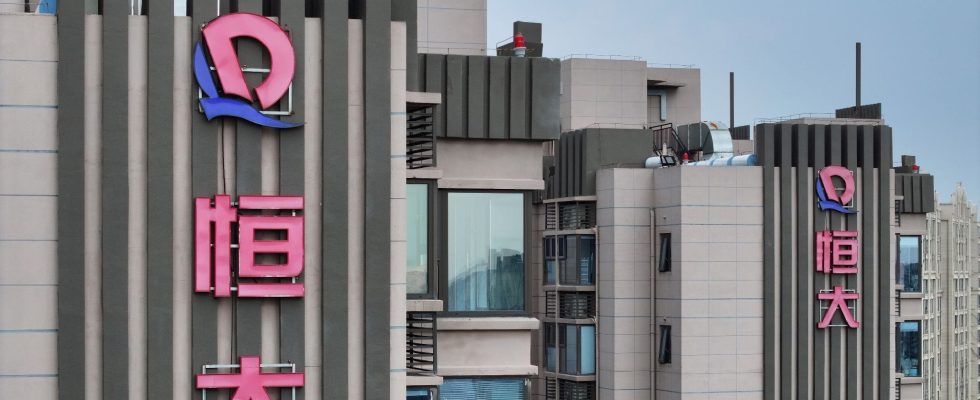He was China’s largest real estate developer, before accumulating nearly $300 billion in debt. A Hong Kong court on Monday ordered the liquidation of struggling Chinese real estate giant Evergrande after it failed to present a convincing restructuring plan, a symbol of the sector’s woes in China.
It has thus become a symbol of the real estate crisis which has lasted for several years in the world’s second largest economy.
“(Considering) the obvious lack of progress on the part of the company in presenting a viable restructuring plan. (…) I consider it appropriate for the court to render a judgment of liquidation of the company, and that is what I order,” said Judge Linda Chan. The judge should present the details of her judgment in the afternoon and could appoint a liquidator for Evergrande.
A “regrettable” decision
However, it is not immediately clear how a decision taken in the semi-autonomous Chinese region of Hong Kong can materialize in mainland China, where the group is based. “Today’s court decision is contrary to our original intention (…) It is extremely regrettable,” responded Evergrande’s managing director, Shawn Siu, to the Chinese economic media 21st Century Business Herald.
After the morning session adjourned, Fergus Saurin, a lawyer representing a group of creditors, told reporters that Evergrande had not “engaged in dialogue” with them. “There were attempts at dialogue at the last minute which led to nothing,” he said. “The company only has itself to blame for being liquidated.”
Exchanges suspended
Last year, international creditors filed a liquidation petition in a Hong Kong court against the Evergrande group. But the proceedings dragged on as the parties tried to negotiate a deal. After the announcement of the liquidation, Evergrande’s shares fell by more than 20% on the Hong Kong Stock Exchange, which suspended trading of the stock.
“Trading in the securities of (…) Evergrande Property Services Group Limited was suspended at 10:19 a.m. local time (02:19 GMT), the Hong Kong Stock Exchange said. The latter also suspended the listing of the group’s electric vehicle subsidiary, Evergrande NEV.
The collapse of Evergrande, which defaulted on payments for the first time in 2021 and which was declared bankrupt in the United States, was closely followed by the Chinese authorities because the group was a pillar of the Chinese economy. China’s construction and real estate sector accounted for about a quarter of China’s GDP.
For decades, new housing in China was paid for even before its construction by the owners and groups easily financed their new projects on credit.
Falling price
But the sector’s massive debt has been seen in recent years by those in power as a major risk for the country’s economy and financial system. Beijing has thus gradually tightened the conditions of access to credit for real estate developers from 2020, which has dried up the sources of financing for groups already in debt. At the end of June, Evergrande estimated its debts at $328 billion.
China has several times announced measures to save its real estate sector but the results have so far had little effect. In December, China’s major cities again recorded a month-on-month decline in property prices, according to official figures. Out of 70 cities which make up the official reference indicator, 62 were thus concerned (compared to 33 in January 2023, a sign of deterioration of the situation).
Chinese banks granted nearly 10,000 billion yuan (1,290 billion euros) in loans to the real estate sector last year, according to data published last week.
